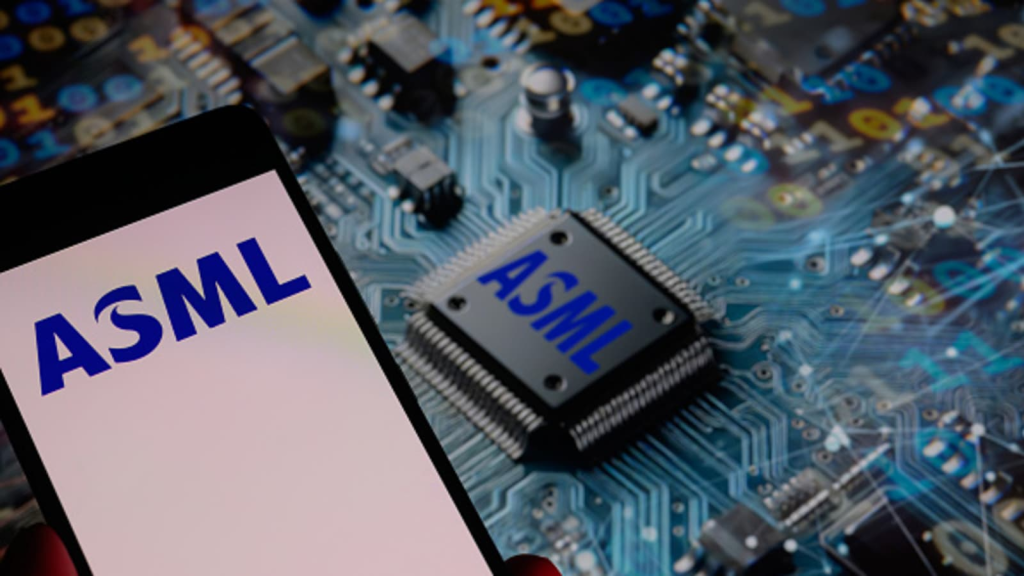Computer chip equipment maker ASML’s deep cuts to its 2025 sales forecast sparked a sell-off in chip stocks on Tuesday over worries that global chip demand may be faltering.
The weaker outlook could, instead, reflect some overcapacity at chip factories that had already stocked up on ASML’s pricey tools during the pandemic and have become better at using them to produce a larger numbers of chips, analysts said.
ASML’s stock plummeted to its biggest single-day loss in a quarter century on its downgraded forecast. In results that the company inadvertently posted a day ahead of schedule, ASML said it expects 2025 total net sales of 30 billion-35 billion euros, near the bottom of its previous forecast.
That dragged down a large swath of the semiconductor industry because ASML has a near-monopoly on critical tools used by TSMC, Intel, and Samsung Electronics to make advanced chips.
Spurred by blockbuster demand for chips during the pandemic, these chipmakers built extra capacity. That growth stabilized as supply chains eased, leaving them to wait to order new tools until their factories looked ready to overflow with orders.
ASML’s forecast was a lagging indicator of what has been playing out at these chip factories for months, analysts said.
The company said in a statement that despite a boom in AI-related chips, other parts of the semiconductor market were weaker for longer than expected, leading companies that make logic chips to delay orders and customers that make memory chips to only plan “limited” new capacity additions.
Intel, TSMC and Samsung are pulling back on orders from ASML because they have realized there is plenty of capacity, said Dan Hutcheson, vice chair at analyst firm TechInsights.
Chip factory usage is around 81% this year, but manufacturers tend to buy tools when that gets into the mid-90% range, Hutcheson said. Intel has slowed down its factory expansion, which suggests Samsung and TSMC will also be cautious, he said.
Chip stockpiles remain high, and chipmakers have become more efficient with ASML’s tools, meaning they can make more chips without having to order more.
Handel Jones, CEO of International Business Strategies, which tracks the chipmaking industry, has slashed the number of steps where ASML’s flagship machines are used, sometimes by almost a third.
Jones said Samsung, for example, may be able to use cutting edge chip-etching technology to reduce the number of steps using ASML’s flagship machines from five or six down to one or two.
If successful, Samsung could have significant excess capacity for those machines, known as extreme ultraviolet lithography machines, he said.
Jones said he had not changed any of his overall chip industry forecasts, which call for booming demand for AI chips and AI-specific memory chips.
“This is a short-term blip. In the long term, it’s going to be okay,” Jones said.



